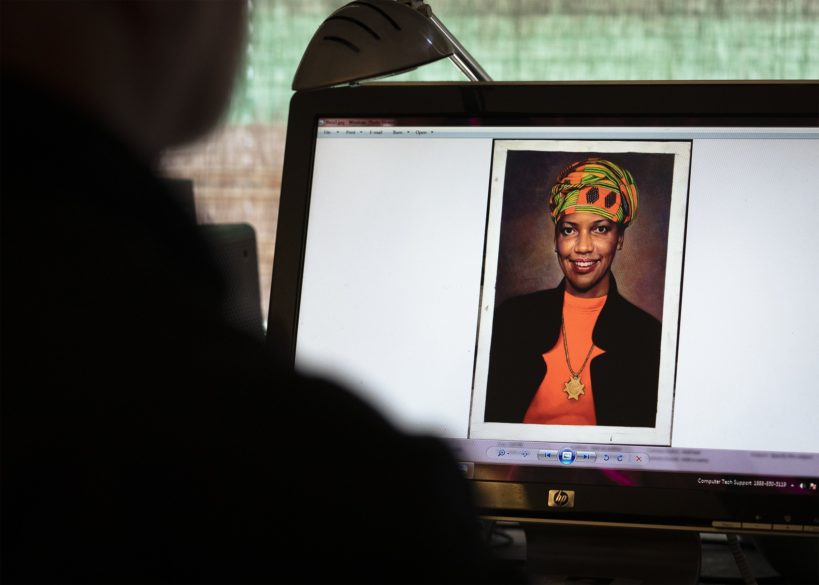By Mark Pattison
WASHINGTON (CNS) – Sister Thea Bowman, one of six Black Catholics known as a “Servant of God” now that their sainthood causes are being advanced, has plenty of lessons to impart from her life to Catholics today, said panelists at a Georgetown University dialogue May 4 that featured not only personal perspectives but was also peppered with song.
Earlier in the day, Jesuit-run Georgetown had dedicated a chapel in a building on campus in the name of Sister Bowman, a Franciscan Sister of Perpetual Adoration.
Sister Patricia Chappell, a Sister of Notre Dame de Namur and former executive director of Pax Christi U.S.A. and former president of the National Black Sisters Conference, recalled her first encounter with Sister Thea in 1980 at an NBSC meeting.

“She was all up in there throwing down with the rest of us,” Sister Chappell said, as she gave a demonstration of the signature part of the Aretha Franklin hit “Respect”: “R-E-S-P-E-C-T, find out what it means to me,” that the sisters were singing jointly.
Cardinal Wilton D. Gregory of Washington was an auxiliary bishop of Chicago in 1984 when he first encountered Sister Thea at a Saturday afternoon parish program on liturgy, culture and music. “I was just mesmerized,” he recalled. “She was just full of life. And I said to myself, ‘You can learn a lot from this woman.’”
Shannen Dee Williams, an associate professor of history at the University of Dayton and the author of “Subversive Habits: Black Catholic Nuns in the Long African American Freedom Struggle,” only found out about Sister Thea in graduate school at Rutgers going though microfilm newspapers from the Black press.
“Sister Thea would call us to tell ‘the true truth’ and realize the greatest weapons of white supremacy is the ability to erase the violence and victims, and therefore we have to tell the true truth,” Williams said.
Asked what Sister Thea might say or sing were she living today, Sister Chappell replied with another song, a favorite from the civil rights movement: “Ain’t going to let nobody turn me around, turn us around, turn us around; ain’t going to let nobody turn us around. We’re going to keep on walking, keep on talking, marching up to freedom land.”
“Certainly there have been so many occasions in our recent history where we might think he’s (God) gone – it’s all over, our nation has collapsed. Our dreams are smashed,” Cardinal Gregory said, although he did not break into song. “But that song. And that’s one of my favorite songs: ‘His eye is on the sparrow, and I know he’s watching over me.’”
“Sister Thea understood it mattered who told her story that Sister Thea was not just a champion of racial justice but she stood against sexism, she stood against all forms of discrimination and oppression and so often sometimes we focus on her championing of the great diversity of us which is beautiful and all of that and it’s authentically Catholic but we forget that she was struggling,” Williams said.
“For so many people, we don’t know the history of the anti-Black admissions policies of the sisterhoods we haven’t had that many sisters of color and African American descendant sisters not because they weren’t being called but because they weren’t able to enter communities so it’s a story of lost vocations and just a reminder that generation of African American women and girls who desegregated those communities are forgotten,” Williams said.
Sister Thea died in 1990 at age 52 from cancer.
